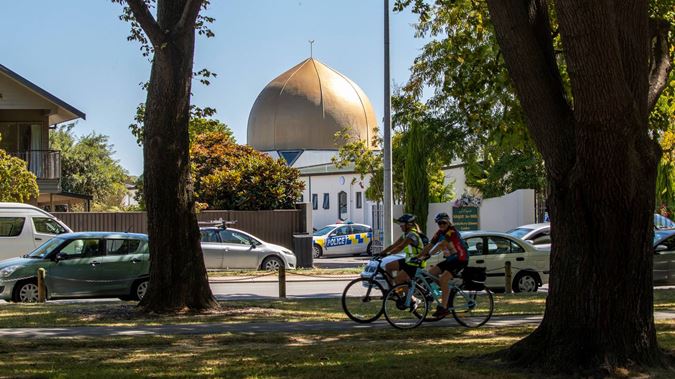The Christchurch Call ignores the obvious signs on the cause of the March 15th attack to focus on how to further promote sharia law worldwide and stop the academic critique that is seeing millions of Muslims leave Islam. Islamic terror attacks motivated Christchurch attack.
Remember this is the mechanism that was put into place to take down ‘hate speech” of the likes of Donald Trump.
It should be noted that violence is not required to defeat Islamic terrorism, only education. There has never been a time in history when more Muslims are leaving Islam because they have read the source material, previously hidden by their imams, for themselves. Without any ordinary Muslims encouraging terrorists that the their prophet is the perfect example of a man, sharia is the perfect law, and providing their finances, terrorists would have neither resources or encouragement to pursue their 72 virgins. Education defeats Islamic ideology.

The Christchurch Call to Action will hone its focus on people’s “online journeys” and how certain platforms can steer users towards radicalisation.
The commitment was announced today after a virtual summit – chaired by Prime Minister Jacinda Ardern and French President Emmanuel Macron – to mark the Call’s two-year anniversary.
Fourteen state leaders and 120 Call members participated in the summit.
Although US President Joe Biden and Facebook chief executive Mark Zuckerberg were absent, US Secretary of State Antony Blinken and Facebook’s vice-president for global affairs Nick Clegg took part.
The Call members said, in a joint statement, they would look at designing ways to better understand the “algorithmic outcomes” for the likes of Facebook and YouTube, which have the potential to lead users on a path towards increasingly more extreme and radical content.
“This will help us address the question of amplification and identify more effective
intervention points,” the statement said.
The Christchurch terrorist Brenton Tarrant, whose attack on 2019 killed 51 people and spurred Ardern to put the Call together, has cited YouTube as one of the ways that led to his radicalisation.
“Algorithms is where many of us are looking to,” Ardern said in a post-summit press conference this morning.
“The existence of algorithms themselves is not necessarily the problem. It’s whether or not they are being ethically used.”
She said there needed to be greater transparency from tech companies about the end point of where algorithms lead users.
The issue was also about educating the users of online platforms to avoid such online rabbit holes in the first place, she added.
“How to better equip a new generation of users to have the skill set so when they encounter radical information or content, or disinformation, they have the skills to deal with that.
“When [dangerous] content may slip through, what are we doing to have resilient users?”
The Call has now expanded to 55 governments, the European commission, two international organisations, 10 online service providers – including Google, Facebook, Twitter and Amazon – and an advisory network of civil society organisations.
New members include Croatia, the Czech Republic, Estonia, Peru, Slovakia and Tunisia.
Asked about the likes of Russia and China joining the Call, Ardern said the network was open to any country that was willing to commit to the Call’s principles, which include upholding international human rights law as well as a free, open and secure internet.
The US recently joined the Call, but concerns remain about US domestic laws that give tech companies legal immunity for the content on their platforms.
Ardern said it was up to individual countries to make their own laws, and it wasn’t just about the legal settings.
“We ask tech companies to do no more than uphold their terms of service.”
She praised the work that had gone into the crisis protocols for responding to an upload of terrorist content online.
These have been used twice since the 2019 terror attacks in Christchurch: for livestreamed attacks in Halle, Germany, and Glendale, Arizona.
According to the Global internet Forum for Counter Terrorism, it took five hours from the first communication about the attack for the protocol to be formally declared for the Halle attack.
The attack in Glendale started just after 2.30pm local time, and the protocol was formally declared at 9pm. Just under 1200 hashes were shared across online platforms to identify 198 visually different videos of the attack that were distinct from each other.
Ardern said tech companies, since the Call started, had changed their terms of services and added “many more barriers and protections to prevent something like what happened in Christchurch from happening again”.
But she said the many attacks since Christchurch were a reminder of the ongoing importance of the Call’s work, as well as its collaborative approach towards eliminating terrorist and violent extremist online content.
Christchurch Call marks two years, hones in on ‘online journeys’ to radicalisation
